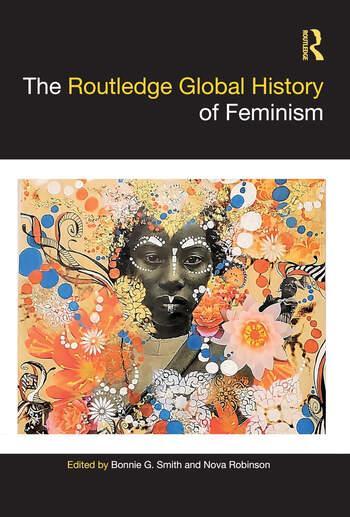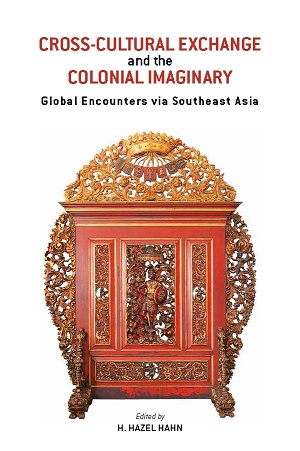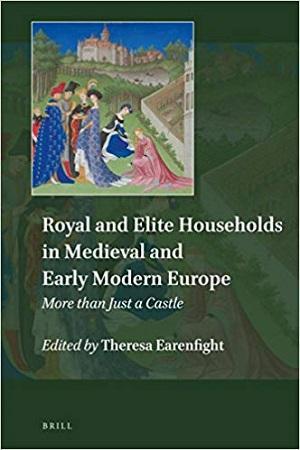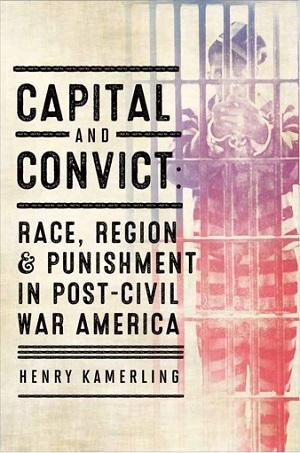
News
News
The latest from the History Department
History Department Awards 2022 - 2023
Máire Rock is the winner of the Donovan Award, given to graduating History major with the highest GPA.
Máire Rock and Sam Seawright are co-winners of the A David Madsen Service Award.
Dr. Saheed Adejumobi, now a Member of the Board of Directors of BlackPast.org.

For the past decade Dr. Adejumobi has been an intellectual and Editorial Board contributor to BlackPast.org, and is now a member of the Board of Directors. BlackPast is an excellent source for reliable history of Black people across the globe, especially in North America. Their goal is to promote a greater understanding of the Black experience, as diverse and globally ubiquity. Read more about BlackPast here, and read some of Dr. Adejumobi's contributions here.
Dr. Hazel Hahn, Professor of History, is Director of the "Race, Racialization, and Resistance in the US" project (2023-25) funded by the Mellon Foundation.
She is a co-PI of the project, along with Dr. Charles Tung and Dr. Maria Bullon-Fernandez. Read about the project here.
Dr. Nova Robinson published: The Routledge Global History of Feminism (2022). She is co-editor of the volume along with Bonnie G. Smith.
 Based on the scholarship of a global team of diverse authors, this wide-ranging handbook surveys the history and current status of pro-women thought and activism over millennia. The book traces the complex history of feminism across the globe, presenting its many identities, its heated debates, its racism, discussion of religious belief and values, commitment to social change, and the struggles of women around the world for gender justice. Authors approach past understandings and today’s evolving sense of what feminism or womanism or gender justice are from multiple viewpoints. These perspectives are geographical to highlight commonalities and differences from region to region or nation to nation; they are also chronological suggesting change or continuity from the ancient world to our digital age. Across five parts, authors delve into topics such as colonialism, empire, the arts, labor activism, family, and displacement as the means to take the pulse of feminism from specific vantage points highlighting that there is no single feminist story but rather multiple portraits of a broad cast of activists and thinkers.
Based on the scholarship of a global team of diverse authors, this wide-ranging handbook surveys the history and current status of pro-women thought and activism over millennia. The book traces the complex history of feminism across the globe, presenting its many identities, its heated debates, its racism, discussion of religious belief and values, commitment to social change, and the struggles of women around the world for gender justice. Authors approach past understandings and today’s evolving sense of what feminism or womanism or gender justice are from multiple viewpoints. These perspectives are geographical to highlight commonalities and differences from region to region or nation to nation; they are also chronological suggesting change or continuity from the ancient world to our digital age. Across five parts, authors delve into topics such as colonialism, empire, the arts, labor activism, family, and displacement as the means to take the pulse of feminism from specific vantage points highlighting that there is no single feminist story but rather multiple portraits of a broad cast of activists and thinkers.
Dr. Theresa Earenfight, Professor of History, published: Catherine of Aragon: Infanta of Spain, Queen of England (2021).
 Catherine of Aragon is an elusive subject. Despite her status as a Spanish infanta, Princess of Wales, and Queen of England, few of her personal letters have survived, and she is obscured in the contemporary royal histories. In this evocative biography, Theresa Earenfight presents an intimate and engaging portrait of Catherine told through the objects that she left behind. A pair of shoes, a painting, a rosary, a fur-trimmed baby blanket—each of these things took meaning from the ways Catherine experienced and perceived them. Through an examination of the inventories listing the few possessions Catherine owned at her death, Earenfight follows the arc of Catherine’s life: first as a coddled child in Castile, then as a young adult alone in England after the death of her first husband, a devoted wife and doting mother, a patron of the arts and of universities, and, finally, a dear friend to the women and men who stood by her after Henry VIII set her aside in favor of another woman. Based on traces and fragments, these portraits of Catherine are interpretations of a life lived five centuries ago. Earenfight creates a compelling picture of a multifaceted, intelligent woman and a queen of England. Engagingly written, this cultural and emotional biography of Catherine brings us closer to understanding her life from her own perspective.
Catherine of Aragon is an elusive subject. Despite her status as a Spanish infanta, Princess of Wales, and Queen of England, few of her personal letters have survived, and she is obscured in the contemporary royal histories. In this evocative biography, Theresa Earenfight presents an intimate and engaging portrait of Catherine told through the objects that she left behind. A pair of shoes, a painting, a rosary, a fur-trimmed baby blanket—each of these things took meaning from the ways Catherine experienced and perceived them. Through an examination of the inventories listing the few possessions Catherine owned at her death, Earenfight follows the arc of Catherine’s life: first as a coddled child in Castile, then as a young adult alone in England after the death of her first husband, a devoted wife and doting mother, a patron of the arts and of universities, and, finally, a dear friend to the women and men who stood by her after Henry VIII set her aside in favor of another woman. Based on traces and fragments, these portraits of Catherine are interpretations of a life lived five centuries ago. Earenfight creates a compelling picture of a multifaceted, intelligent woman and a queen of England. Engagingly written, this cultural and emotional biography of Catherine brings us closer to understanding her life from her own perspective.
Dr. Marc McLeod received the College of Arts and Sciences 2020 Outstanding Teaching Award in 2020.
 This prestigious award given to one professor in the College of Arts & Sciences each year. Congratulations to Dr. McLeod. A specialist of Latin American History, he teaches a variety of courses on the history of South America and the Caribbean. Learn more about Dr. McLeod here.
This prestigious award given to one professor in the College of Arts & Sciences each year. Congratulations to Dr. McLeod. A specialist of Latin American History, he teaches a variety of courses on the history of South America and the Caribbean. Learn more about Dr. McLeod here.
H. Hazel Hahn, Professor of History, published the volume she edited: Cross-Cultural Exchange and the Colonial Imaginary: Global Encounters via Southeast Asia, University of Singapore Press, 2019.
 For years, the study of how culture operates in colonial contexts was dominated by the ideas of transmission and influence. Yet the more we learn, the less useful those concepts seem to be. This collection deliberately complicates the binary of colonizer and colonized in order to establish a more effective framework for understanding. The contributors address a wide range of questions, rooted in specific colonial experiences: How can a controversy about forms of deference in Java reveal tensions around colonial policies and the rise of nationalism? What was Vietnamese about the French colonial governor’s palace in Hanoi? What can the circulation of jazz in Asia tell us about its evolution, circuits of exchange, colonial culture, and its appropriation? Through such inquiries, the volume traces the multilinear trajectories of the flow of decorative objects, architectural styles, photographs, sartorial practices, music, deference rituals, and ethnographic knowledge, in a transimperial framework within and beyond Southeast Asia and Europe. Highlighting a wide range of actors along with their motivations and interactions, this volume treats cultural heritage as dynamic processes.
For years, the study of how culture operates in colonial contexts was dominated by the ideas of transmission and influence. Yet the more we learn, the less useful those concepts seem to be. This collection deliberately complicates the binary of colonizer and colonized in order to establish a more effective framework for understanding. The contributors address a wide range of questions, rooted in specific colonial experiences: How can a controversy about forms of deference in Java reveal tensions around colonial policies and the rise of nationalism? What was Vietnamese about the French colonial governor’s palace in Hanoi? What can the circulation of jazz in Asia tell us about its evolution, circuits of exchange, colonial culture, and its appropriation? Through such inquiries, the volume traces the multilinear trajectories of the flow of decorative objects, architectural styles, photographs, sartorial practices, music, deference rituals, and ethnographic knowledge, in a transimperial framework within and beyond Southeast Asia and Europe. Highlighting a wide range of actors along with their motivations and interactions, this volume treats cultural heritage as dynamic processes.
Theresa Earenfight, Professor of History, published the volume she edited: Royal and Elite Households in Medieval and Early Modern Europe: More than Just a Castle, Brill, 2018.
 In this volume, the authors bring fresh approaches to the subject of royal and noble households in medieval and early modern Europe. The essays focus on the people of the highest social rank: the nuclear and extended royal family, their household attendants, noblemen and noblewomen as courtiers, and physicians. Themes include financial and administrative management, itinerant households, the household of an imprisoned noblewoman, blended households, and cultural influence. The essays are grounded in sources such as records of court ceremonial, economic records, letters, legal records, wills, and inventories. The authors employ a variety of methods, including prosopography, economic history, visual analysis, network analysis, and gift exchange, and the collection is engaged with current political, sociological, anthropological, gender, and feminist theories.
In this volume, the authors bring fresh approaches to the subject of royal and noble households in medieval and early modern Europe. The essays focus on the people of the highest social rank: the nuclear and extended royal family, their household attendants, noblemen and noblewomen as courtiers, and physicians. Themes include financial and administrative management, itinerant households, the household of an imprisoned noblewoman, blended households, and cultural influence. The essays are grounded in sources such as records of court ceremonial, economic records, letters, legal records, wills, and inventories. The authors employ a variety of methods, including prosopography, economic history, visual analysis, network analysis, and gift exchange, and the collection is engaged with current political, sociological, anthropological, gender, and feminist theories.
Henry Kamerling, Lecturer of History, published: Capital and Convict: Race, Region, and Punishment in Post–Civil War America, The University of Virginia Press, 2018.
 Both in the popular imagination and in academic discourse, North and South are presented as fundamentally divergent penal systems in the aftermath of the Civil War, a difference mapped onto larger perceived cultural disparities between the two regions. The South’s post Civil War embrace of chain gangs and convict leasing occupies such a prominent position in the nation’s imagination that it has come to represent one of the region’s hallmark differences from the North. The regions are different, the argument goes, because they punish differently.
Both in the popular imagination and in academic discourse, North and South are presented as fundamentally divergent penal systems in the aftermath of the Civil War, a difference mapped onto larger perceived cultural disparities between the two regions. The South’s post Civil War embrace of chain gangs and convict leasing occupies such a prominent position in the nation’s imagination that it has come to represent one of the region’s hallmark differences from the North. The regions are different, the argument goes, because they punish differently.
Capital and Convict challenges this assumption by offering a comparative study of Illinois’s and South Carolina’s formal state penal systems in the fifty years after the Civil War. Henry Kamerling argues that although punishment was racially inflected both during Reconstruction and after, shared, nonracial factors defined both states' penal systems throughout this period. The similarities in the lived experiences of inmates in both states suggest that the popular focus on the racial characteristics of southern punishment has shielded us from an examination of important underlying factors that prove just as central—if not more so—in shaping the realities of crime and punishment throughout the United States.